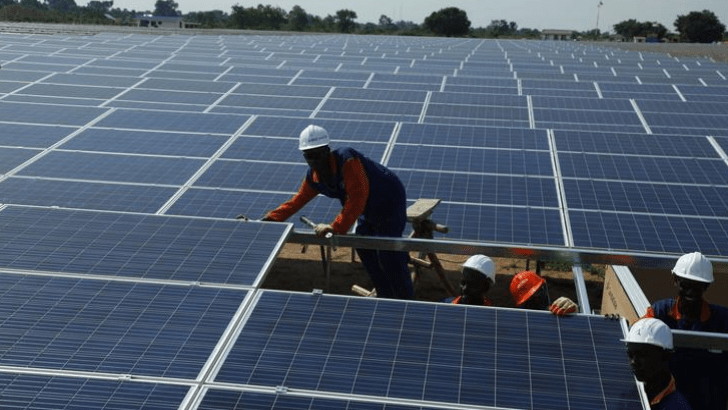
By Saloum Sheriff Janko
The Gambia government and partners including World Bank, European Union and European Investment Bank on Monday launched $161 million solar project to end power woes in the country.
The project according to Gambian officials will increase access to energy, ensure that education and health services benefit from reliable power. It will also help to address Gambia’s current power shortages and
increase energy supply by one-fifth.
The hope is that it will also transform electricity access in rural communities through construction of a new photo-voltaic plant at Jambur in Kombo Central about 25 kilo meters away from the capital, Banjul.
“Investment in Gambia’s energy infrastructure is essential to improve economic opportunities and daily lives.”The Vice President of Gambia, Ousainou Darboe, in his official statement says: “the close cooperation between The Gambia and international donors will ensure that Gambia benefits from the most cutting-edge technical experience in the industry from around the world, and become a model for renewable energy for the rest of Africa.”
European Investment Bank, Vice President for energy, Andrew McDowell says: “connecting one of the largest solar power plants in West Africa to communities across Gambia will increase access to clean energy, create new economic opportunities and improve health and education for the future.”
Potential impact
The project is designed to ensure the sustainable provision of electricity powered by the solar systems for at least 20 years.
Energy demand in The Gambia has grown by 5.5% a year in recent years and the new 20 MW solar power plant to the national energy grid will both significantly increase Gambia’s current generation capacity of 98 MW and enable electrification of rural areas.
The Gambia is currently improving its energy sector to attract foreign investors, on Friday two new generators were stationed at Kotu Power plant as substitute to (11 Mega Watt) whose construction started in 2016 and was co-funded by BADEA and OPEC awarded to a consortium, and other 20 Mega Watt project funded by the Islamic Development Bank (IDB) started in February, 2018.










Recent Comments